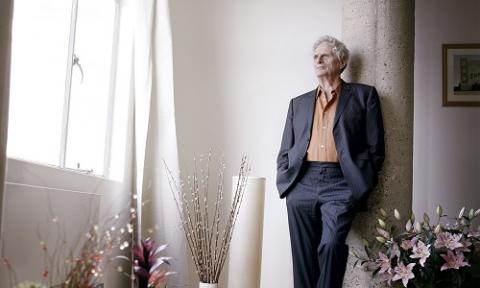New OU/BBC Series: Thinking Allowed

On Wednesday 4 March The Open University once again teams up with BBC Radio 4’s long-running social science programme, Thinking Allowed for ten weeks.
Thinking Allowed is broadcast every Wednesday at 4 pm, on BBC Radio 4, with a repeat on the following Monday at 12.15 am. The series is also available via BBC Sounds.
The programme examines how society functions on many levels. It often strays beyond the demarcation of social science, into criminology, psychology, law, and politics. Researchers, authors and expert guests join presenter, Laurie Taylor, to provide analysis and discussion on fascinating - and often ground-breaking new research publications.
Programme
March 4th
Loneliness - Fay Bound Alberti, Reader in History at the University of York, charts the emergence of loneliness as a contemporary emotional state. Also, Janne Flora, postdoctoral scholar at Aarhus University, explores the deep connections between loneliness and modernity in the Arctic, tracing the history of Greenland and analysing the social dynamics that shaped it
March 11th
Kidnap - Millions of people live, travel, and work in areas with significant kidnap risks, yet the vast majority of abductions are peacefully resolved. Anja Shortland, Reader in Political Economy, King's College London, explores this lucrative but tricky business. Also, Jatin Dua, Assistant Professor of Anthropology at the University of Michigan, examines the upsurge in maritime piracy off the coast of Somalia, taking us from pirate communities in Somalia to insurance offices in London.
March 18th
Traders and technology - Daniel Beunza - Associate Professor in the Cass Business School at City, University of London, discusses his study of a Wall Street derivatives-trading room. In particular, he explores how the extensive use of financial models and trading technologies over recent decades has exerted a far-ranging influence on Wall Street, one which should alert us to the risks of moral disengagement caused by a dependence on ‘models’. Also, Anastasia Nesvetailova, Director of City Political Economy Research Centre at City, University of London, argues that financial malpractice is not an anomaly, but part of the business model of finance.
March 25th
Blood - What is blood and how can we account for its enormous range of meanings and its extraordinary symbolic power? Jan Verplaetse - Associate Professor in Moral Philosophy at Ghent University, Belgium, investigates our fascination with blood, moving from antiquity to the present, from magic to psychology, from philosophy to religion and scientific discoveries, he demonstrates why blood both repels and attracts us. Also, Janet Carsten, Professor of Social and Cultural Anthropology at the University of Edinburgh, traces the multiple meanings of blood as it moves from donors to labs, hospitals, and patients in Penang, Malaysia. She tells the stories of blood donors, lab staff and hospital workers and reveals how blood work reflects the cultural and political dynamics of modern Malaysia.
Details above are subject to changes. To view the latest programme information, and to find out about the other episodes in the OU/BBC series, visit OpenLearn.
The series was commissioned for the university by Broadcast and Partnership, and is produced with the support of The Faculty of Arts & Social Science. The nominated academics for this series are Prof. Louise Westmarland and Prof. Sophie Watson, and the Media Fellow is Dr Alison Penn.
OpenLearn:
Visit OpenLearn, the OU’s free learning website, to explore how criminal law adapts to changes in modern technology, and to watch exclusive interviews with Thinking Allowed presenter, Laurie Taylor.
(note: OpenLearn site may not be live until time of broadcast)
Request your prospectus
![]()
Explore our qualifications and courses by requesting one of our prospectuses today.